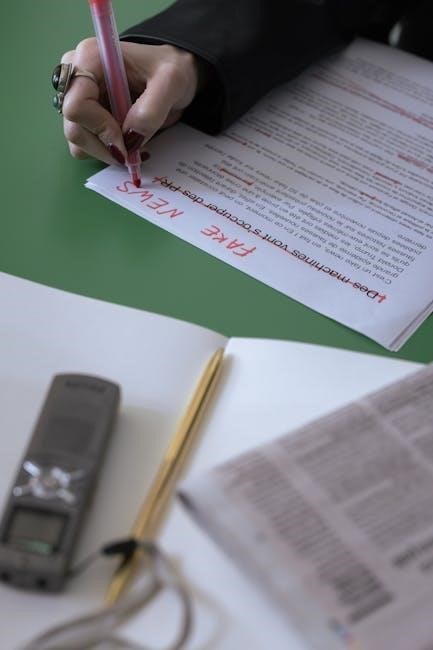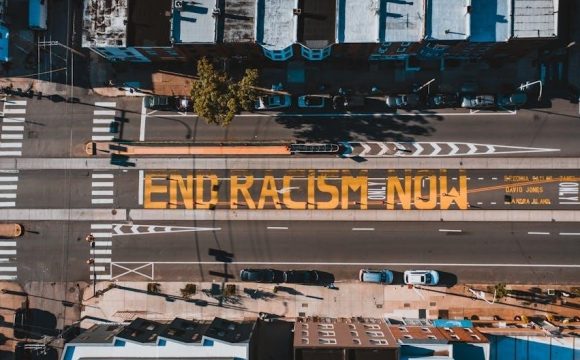Philosophically Correct Worksheet Answers PDF: A Comprehensive Guide
This guide offers a comprehensive overview of philosophically correct worksheet answers in PDF format․ It aims to provide clarity and precision in understanding philosophical concepts and applying them accurately․ Explore resources, exercises, and discussions to deepen your philosophical understanding․
Philosophical worksheets serve as invaluable tools for engaging students in critical thinking and exploring complex ideas․ These worksheets typically feature carefully selected reading passages rooted in philosophical thought, accompanied by a range of questions designed to foster deeper understanding․ Multiple-choice questions, short answer prompts, and open-ended response questions encourage students to analyze, evaluate, and synthesize information, promoting active learning and intellectual growth․ These worksheets are designed to guide students through the rich and complex world of philosophical thought․ Each worksheet set features a carefully selected philosophy-based reading passage․ These interactive philosophy worksheets and online exercises are available for all levels and units․ Created by teachers philosophy auto-graded practice and assessments are perfect for in-class and distance learning․
Furthermore, philosophical worksheets often incorporate activities such as logic exercises and proof construction, enhancing students’ reasoning skills․ They provide a structured framework for exploring diverse philosophical perspectives on topics ranging from ethics and epistemology to political philosophy and the nature of reality․ By engaging with these worksheets, students develop the ability to articulate their own philosophical positions, engage in constructive dialogue, and critically examine assumptions, fostering a lifelong appreciation for intellectual inquiry․
Understanding Key Philosophical Concepts
Grasping key philosophical concepts is essential for navigating philosophical discussions and analyses․ Core concepts include epistemology, which explores the nature of knowledge and justification; metaphysics, which investigates the fundamental nature of reality; ethics, which examines moral principles and values; and logic, which provides the framework for valid reasoning․ Understanding these concepts involves delving into the ideas of influential philosophers throughout history, such as Plato, Aristotle, Kant, and Mill․ Exploring these concepts can be achieved through interactive philosophy worksheets․ These worksheets have been designed to introduce Mary Midgleys most important ideas: Philosophical Plumbing and Gaia theory․
Furthermore, comprehending concepts like existentialism, utilitarianism, deontology, and virtue ethics provides a foundation for analyzing ethical dilemmas and moral decision-making․ By engaging with primary philosophical texts and secondary analyses, students can develop a nuanced understanding of these concepts․ These activities can also include multiple choice questions, fill-in-the-blank and other question types․ Through careful study and critical reflection, learners can cultivate the ability to apply philosophical concepts to real-world issues and articulate their own informed perspectives․
Analyzing the Declaration of Independence Philosophically
Philosophically analyzing the Declaration of Independence reveals its profound roots in Enlightenment thought․ The document asserts self-evident truths, including the rights to life, liberty, and the pursuit of happiness, reflecting John Locke’s concept of natural rights․ It proclaims that governments derive their power from the consent of the governed, emphasizing popular sovereignty and social contract theory․ People have a right to revolution when their government becomes tyrannical and fails to protect their natural rights․ The Declaration’s emphasis on equality and unalienable rights aligns with Enlightenment ideals of human dignity and individual autonomy․ The ideas found in the Declaration of Independence were greatly influenced by the Enlightenment philosopher John Locke․ Lockes concepts of natural rights, social contract theory, and the right to revolution can be seen reflected in the language and principles of the Declaration․
Furthermore, the Declaration’s justification for revolution reflects a commitment to principles of justice and resistance against oppression․ Examining the document through various philosophical lenses—such as liberalism, republicanism, and natural law theory—offers insights into its enduring significance in shaping American political thought․
The Purpose of Government
Philosophically, the purpose of government is a central question in political thought․ From a social contract perspective, governments are created to secure the unalienable rights of the people, including life, liberty, and the pursuit of happiness; This reflects the idea of social contract theory, which suggests that individuals voluntarily come together to form a government to protect their rights and maintain order in society․ Governments should exist to safeguard individual freedoms and promote the common good, ensuring justice and equality for all citizens․ Different philosophical perspectives offer varying interpretations of the government’s role․
Utilitarianism, for example, emphasizes maximizing overall happiness and well-being, while libertarianism prioritizes individual liberty and limited government intervention․ Communitarianism stresses the importance of social cohesion and collective responsibility, while theories of justice focus on fairness and equitable distribution of resources․ Ultimately, the purpose of government is a subject of ongoing debate, shaped by diverse philosophical viewpoints and societal values․ The governments authority and legitimacy come from the people who willingly grant it the power to rule over them․
Consent of the Governed
The principle of “consent of the governed” asserts that a government’s legitimacy and authority derive from the consent or agreement of the people it governs․ This concept is fundamental to democratic theory, emphasizing that political power ultimately resides in the citizenry․ The government’s authority and legitimacy come from the people who willingly grant it the power to rule over them, it is important to note․
Philosophically, this principle is rooted in the idea that individuals possess inherent rights and freedoms that cannot be legitimately infringed upon without their consent․ John Locke, a prominent Enlightenment philosopher, argued that governments are formed through a social contract, where individuals voluntarily surrender certain rights in exchange for protection and governance․ However, this surrender of rights is contingent upon the government upholding its end of the contract by safeguarding the people’s natural rights․ When the government fails to do so, the people have the right to alter or abolish it․ The consent of the governed implies that citizens have the right to participate in the political process, express their opinions, and hold their leaders accountable․
The Right to Revolution
The right to revolution, a contentious concept in political philosophy, posits that individuals or a people have the right to overthrow a government that acts against their interests․ According to the Declaration, people have a right to revolution when their government becomes tyrannical and fails to protect their natural rights․ This is because the people have the right to alter or abolish a government that no longer serves their best interests or violates their fundamental rights․ The right to revolution is often invoked when governments become oppressive, violate fundamental rights, or fail to uphold the social contract․
It is generally considered a last resort, justified only when all other means of redress have been exhausted․ Philosophers like John Locke argued that individuals possess inherent rights that governments cannot legitimately infringe upon․ When a government systematically violates these rights, it forfeits its legitimacy and invites resistance․ However, the right to revolution is not without its limitations and potential dangers․ It can lead to violence, instability, and the disruption of social order․ Therefore, it should be exercised with caution and only when there is a reasonable prospect of establishing a more just and equitable government․
Influence of John Locke
John Locke, a prominent Enlightenment philosopher, profoundly influenced the ideas found in the Declaration of Independence․ His concepts of natural rights, social contract theory, and the right to revolution can be seen reflected in the language and principles of the Declaration․ Locke argued that individuals possess inherent rights, including the rights to life, liberty, and property, which governments cannot legitimately infringe upon․
These ideas are echoed in the Declaration’s assertion of unalienable rights, including life, liberty, and the pursuit of happiness․ Locke’s social contract theory posits that governments derive their legitimacy from the consent of the governed․ This principle is enshrined in the Declaration’s emphasis on popular sovereignty and the right of the people to alter or abolish a government that becomes destructive of their rights․ Furthermore, Locke’s advocacy of the right to revolution in cases of governmental tyranny provided a philosophical justification for the American colonists’ decision to declare independence from British rule․ Locke’s ideas shaped the Declaration’s core tenets․
Exploring Truth vs․ Opinion
Distinguishing between truth and opinion is a fundamental aspect of philosophical inquiry․ Truth refers to statements or beliefs that correspond to reality, while opinions are subjective expressions of personal feelings, beliefs, or judgments․ Exploring the difference between truth and opinion involves critical analysis and evaluation of evidence․
Truth claims often rely on empirical evidence, logical reasoning, or established facts․ Opinions, on the other hand, are influenced by individual perspectives, cultural backgrounds, and personal experiences․ Recognizing the distinction between truth and opinion is crucial for engaging in meaningful discussions, avoiding logical fallacies, and forming well-informed conclusions․ Philosophical exercises and worksheets can help individuals develop the skills necessary to evaluate claims, identify biases, and construct sound arguments based on evidence and reason․ By carefully examining the basis of claims and considering alternative viewpoints, one can enhance critical thinking abilities and arrive at more accurate and nuanced understandings of the world․
Engaging with Philosophical Discussions

Engaging in philosophical discussions is crucial for developing critical thinking and communication skills․ These discussions involve exploring complex ideas, analyzing arguments, and considering diverse perspectives․ Effective participation requires active listening, clear articulation of thoughts, and respectful engagement with opposing viewpoints․ Philosophical discussions encourage participants to question assumptions, challenge conventional wisdom, and construct well-reasoned arguments․
Creating a safe and inclusive environment is essential for fostering productive discussions․ Participants should feel comfortable expressing their ideas without fear of judgment or ridicule․ Ground rules, such as respecting differing opinions and avoiding personal attacks, can help maintain a civil and constructive tone․ Philosophical discussions can be enhanced through the use of thought experiments, case studies, and real-world examples․ These tools provide concrete scenarios that stimulate critical thinking and encourage participants to apply philosophical concepts to practical situations․ Through thoughtful dialogue and respectful exchange, individuals can expand their understanding of complex issues and develop a more nuanced perspective on the world․
Using Philosophy Toolkits and Lesson Plans
Philosophy toolkits and lesson plans are invaluable resources for educators seeking to introduce philosophical concepts to students․ These resources provide structured activities, reading passages, and discussion prompts designed to engage students in critical thinking and ethical reasoning․ Toolkits often include a variety of materials, such as worksheets, case studies, and interactive exercises, that cater to diverse learning styles․ Lesson plans typically outline specific learning objectives, instructional strategies, and assessment methods․
Effective philosophy toolkits and lesson plans encourage students to explore fundamental questions about knowledge, morality, and existence․ They promote active learning through collaborative discussions, debates, and presentations․ By engaging with philosophical texts and ideas, students develop their ability to analyze arguments, evaluate evidence, and formulate well-reasoned conclusions․ Furthermore, these resources help students connect philosophical concepts to real-world issues, fostering a deeper understanding of the relevance and significance of philosophical inquiry․ When selecting philosophy toolkits and lesson plans, it is important to consider the age and developmental level of the students, as well as the specific learning goals of the curriculum․ With careful planning and thoughtful implementation, these resources can transform the classroom into a vibrant space for philosophical exploration․
Holistic vs․ Partial Points of View

Understanding the distinction between holistic and partial points of view is crucial in philosophical analysis․ A holistic perspective considers the entirety of a situation, acknowledging the interconnectedness of all its components․ It seeks to grasp the bigger picture, recognizing that individual elements are best understood within the context of the whole․ In contrast, a partial point of view focuses on specific aspects of a situation, often neglecting the broader context․
Adopting a holistic perspective encourages a more comprehensive and nuanced understanding of complex issues․ It allows for the identification of underlying patterns and relationships that might be missed when focusing solely on isolated details․ On the other hand, a partial point of view can lead to narrow interpretations and incomplete conclusions․ While it may be necessary to examine specific elements in detail, it is essential to integrate these findings into a broader framework to avoid distortion;
Philosophical inquiry often requires shifting between holistic and partial perspectives․ By considering both the forest and the trees, one can develop a more well-rounded and insightful understanding of the world․
Philosophical Exercises: Logic and Proofs
Engage in philosophical exercises centered on logic and proofs to sharpen your critical thinking skills․ These exercises provide a structured approach to analyzing arguments, identifying fallacies, and constructing sound reasoning․ Logic, as a fundamental branch of philosophy, equips individuals with the tools to evaluate claims and arrive at well-supported conclusions․
Formal proofs, a key component of logical reasoning, involve demonstrating the validity of an argument through a series of steps, each justified by established rules of inference․ These proofs offer a rigorous framework for assessing the consistency and coherence of philosophical arguments․ Informal proofs, on the other hand, rely on less formal methods of reasoning, often employing natural language and intuitive understanding․
By engaging in both formal and informal proofs, students can develop a deeper appreciation for the importance of logical rigor in philosophical inquiry․ These exercises foster a commitment to clarity, precision, and evidence-based reasoning, essential skills for navigating the complexities of philosophical thought․ Embrace these challenges to enhance your analytical abilities and strengthen your philosophical arguments․
Philosophical Perspectives on Government
Explore diverse philosophical perspectives on government, delving into the ideas of influential thinkers throughout history․ From Locke’s emphasis on natural rights and limited government to Hobbes’s advocacy for a strong sovereign, these perspectives offer contrasting visions of the ideal political order․ Rousseau’s concept of the social contract and the general will further enriches this exploration, highlighting the importance of collective decision-making and popular sovereignty․

Analyze how these philosophical frameworks shape our understanding of governance, justice, and individual liberties․ Consider the role of government in protecting citizens’ rights, promoting social welfare, and maintaining order․ Examine the tensions between individual autonomy and collective responsibility, as well as the challenges of balancing competing interests within a diverse society․
By engaging with these philosophical perspectives, students can develop a more nuanced understanding of the complexities of government and its impact on human lives․ This exploration encourages critical reflection on the principles and values that underpin political systems, fostering informed citizenship and responsible participation in democratic processes․ Uncover the philosophical foundations of government․
The Role of Philosophers in Shaping Government
Philosophers have played a pivotal role in shaping the course of government throughout history, offering profound insights into the nature of justice, power, and the ideal state․ Their ideas have served as guiding principles for political leaders, influencing the design of constitutions, the formulation of laws, and the establishment of social institutions․ From ancient Greece to the modern era, philosophers have challenged existing norms, questioned authority, and proposed alternative visions of governance․
Consider the impact of Plato’s concept of the philosopher-king, advocating for wise and virtuous rulers, or Aristotle’s emphasis on constitutionalism and the rule of law․ Explore the contributions of Enlightenment thinkers like Locke and Montesquieu, whose ideas on natural rights, separation of powers, and limited government profoundly shaped the American Revolution and the development of democratic institutions․
Philosophers continue to engage with contemporary political issues, offering critical perspectives on topics such as social justice, human rights, and global governance․ Their insights provide valuable frameworks for analyzing complex problems and developing innovative solutions, ensuring that government remains responsive to the needs and aspirations of its citizens․ Philosophers shape government through ideas․
Political Correctness in Philosophy
Political correctness in philosophy raises complex questions about language, inclusivity, and the pursuit of truth․ It involves navigating sensitivities surrounding identity, culture, and social justice while upholding philosophical rigor and intellectual honesty․ Some argue that political correctness can stifle open inquiry and critical debate, leading to self-censorship and a reluctance to challenge prevailing views․

Others contend that it is essential for creating a more inclusive and equitable environment, ensuring that marginalized voices are heard and respected․ A balanced approach requires careful consideration of the potential harms and benefits of both political correctness and unbridled expression․ Philosophers must strive to engage in respectful dialogue, acknowledging diverse perspectives while maintaining a commitment to reasoned argumentation and evidence-based analysis․
Navigating this terrain demands intellectual humility, a willingness to listen and learn from others, and a commitment to fostering a culture of open inquiry where all voices can be heard․ Political correctness in philosophy necessitates a constant reevaluation of language and assumptions to promote understanding and mutual respect․ The goal is to foster inclusivity․







